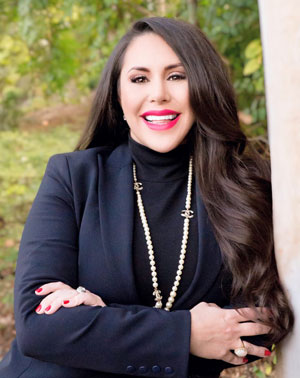 By Erica Beal, founder and CEO of AVIVV and member of NAWBO San Diego
By Erica Beal, founder and CEO of AVIVV and member of NAWBO San Diego
As women business owners, our daily task load is seemingly endless. Between leading our organizations, caring for children and/or aging parents, running a household and fitting in any sense of social life or community engagement, it’s no surprise that our own self-care is often an afterthought.
So, why is it that among all of the tasks and responsibilities that we complete during each day that we can’t seem to carve out half an hour for ourselves?
Of the many chapters of my life I’ve spent prioritizing my family, my businesses and my role as a military spouse, I know the challenge of caring for physical and mental wellness. Life-changing events tend to bring perspective and balance.
For me, it was through the loss of my father from leukemia that I had a complete shift in mindset related to my schedule for the good of my mental and physical health. The phrase “You can’t pour from an empty pitcher” certainly applied to me at this time. I could no longer accept that my days would revolve around everyone else’s well-being when I wasn’t considering my own. My perspective shifted from viewing my own self-care as selfish to something that is appreciated, with benefits that extend beyond me and into my family and community of colleagues.
Now, I start my day by setting the most important meeting of the day—with myself. Typically, this looks like a 20-minute bootcamp class or a 15-minute walk outside of my home or the office. I set up a calendar invite as an appointment, just like everything else on my schedule of priorities.
When I started AVIVV, it was imperative to build the firm on a strong foundation of servant leadership, and we take pride in cultivating a culture of wellness throughout the organization. We ensure employees invest in healthy lifestyle behaviors that benefit both mental and physical health. As someone who is known for being upbeat with a lot of energy, I have found that hosting walking meetings outside or in nature fosters a unique sense of collaboration while keeping us active. It turns out that these meetings are preferred by the team as well. While my business card tells people that I’m the CEO, I take very seriously my unofficial role as our team’s chief health advocate.
A study by the American Heart Association CEO Roundtable found a strong correlation between employee participation in company health programs and the CEO’s own engagement. According to the study, 93 percent of those who know the CEO participates say their employer is committed to employee health, compared to 55 percent of those who say the CEO doesn’t participate.
Four ways to encourage your team members to prioritize their health and wellness at work include:
- Host 15-minute walking meetings outside of the office and encourage employees to do the same.
- Communicate frequently about your company’s wellness program and the incentives for participating. Be sure to seek out feedback that aims to improve participation.
- Foster a culture of wellness inside and outside of the workplace for both physical and mental wellness. This means encouraging vacations, exercise and mindfulness.
- Lead by example. More often than not, employees feel as though they need permission to implement these healthy habits while at work. Practice what you preach and encourage your team to make the best choice for their individual preferences.
Building a culture of wellness stretches benefits from the front lines to the bottom line. It’s no longer an option to prioritize our health or that of our cherished employees. No matter your position or title in your organization, I hope that you will start each day by setting your most important meeting of the day—with yourself.
About the Author
Erica Beal is the founder and CEO of AVIVV, a professional services engineering firm serving the energy and utility industry throughout the United States. Erica is a proud military spouse to a decorated Navy Seal and mother to two boys. She has built her business on a foundation of servant leadership and a commitment to hiring and mentoring military spouses and veterans as a means to reduce the 24 percent unemployment rate within the military community.

